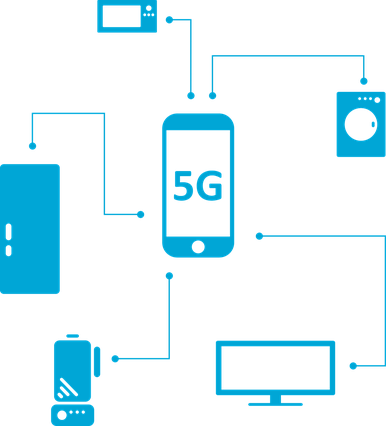Japan asked by the UK for help with 5G technology
3 minutes read
27 August 2020

The Japanese telecoms providers NEC and Fujitsu look set to benefit from the removal of Huawei 5G network equipment from Britain’s mobile network, according to the Nikkei on 18th July.
As a result of intense global lobbying by the United States, Huawei, the Chinese telecoms equipment vendor, has recently been banned from Britain’s 5G networks on security grounds.
As a result of this, Britain is seeking to cooperate with Japan on 5G technology and have NEC and Fujitsu compete with the incumbent vendors, Ericsson and Nokia, to replace the Huawei 5G components in its networks.
This announcement comes at the same time that the UK and Japan are negotiating a free trade deal in preparation for the UK’s departure from the EU at the end of the Brexit transition period on 1st January 2021. We might anticipate that the supply of 5G telecoms equipment to the UK is going to be part of the negotiating agenda.
What is 5G?
5G is the fifth generation of mobile networks and has higher throughput (speed), lower latency (delay) and increased flexibility compared to current 4G networks and is expected to support many new types of use cases. The low latency aspect of 5G will allow services such as autonomous driving and human-to-machine and machine-to-machine interaction. 5G’s high throughput (expected to be 10 times that of 4G) will provide a better user experience and support the provision of broadband internet services into rural areas.
Is 5G service available now?
5G services in both Japan and the UK are now operational, but still immature. In Japan, the established mobile operators SoftBank, KDDI and NTT Docomo have all launched 5G services this year although coverage is still limited. Rakuten Mobile, a subsidiary of Japanese e-commerce giant Rakuten is also launching a 5G service later in 2020. In the UK the tier 1 mobile operators, Vodafone, O2 UK, EE and Three UK have all launched 5G, as have some of the MVNOs including BT Mobile, Sky Mobile, VOXI and Tesco Mobile. As in Japan, coverage is limited at the present time.
Who is active in 5G development?
Earlier this year NEC and NTT announced a capital and business alliance, in which NTT took a 4.8 percent stake in NEC, for the purpose of joint research and development and the “global rollout of ICT products utilizing innovative optical and wireless technologies”. This will enable the pair to perform research and development into next-generation technologies which are supportive of future 5G networks.
Rakuten Mobile and NEC are working together to develop a containerized standalone (SA) 5G core network. In contrast to the non-standalone core (NSA) which is an evolution of 4G LTE, the SA core allows for cloud deployment of virtualised 5G core elements which are accessible much in the same way that AWS provides cloud compute and storage services. This will support faster and flexible 5G deployments.
Both NEC and Fujitsu are part of a NEDO (New Energy and Industrial Technology Development Organisation) sponsored project in Japan to develop ultra-high speed 5G networks, and there is a general intention on the part of the Japanese government to promote its network technology overseas.
Why is 5G important to the UK?
The UK sees 5G as a key technology enabler in its economic development and recently announced a £16.4 million match-funded boost to its 5GTT (5G Testbeds and Trials programme) to develop innovative new uses for 5G. One of the current trials is at the Nissan factory in Sunderland, UK which is evaluating 5G’s ability to manage autonomous trucks for efficiency savings.
In the 2019 Japan-UK Joint Statement, the two countries agreed to share best practice use cases in 5G and expressed the expectation that the technology to be the basis for creating innovation.
If you would like to learn more, please contact us.
